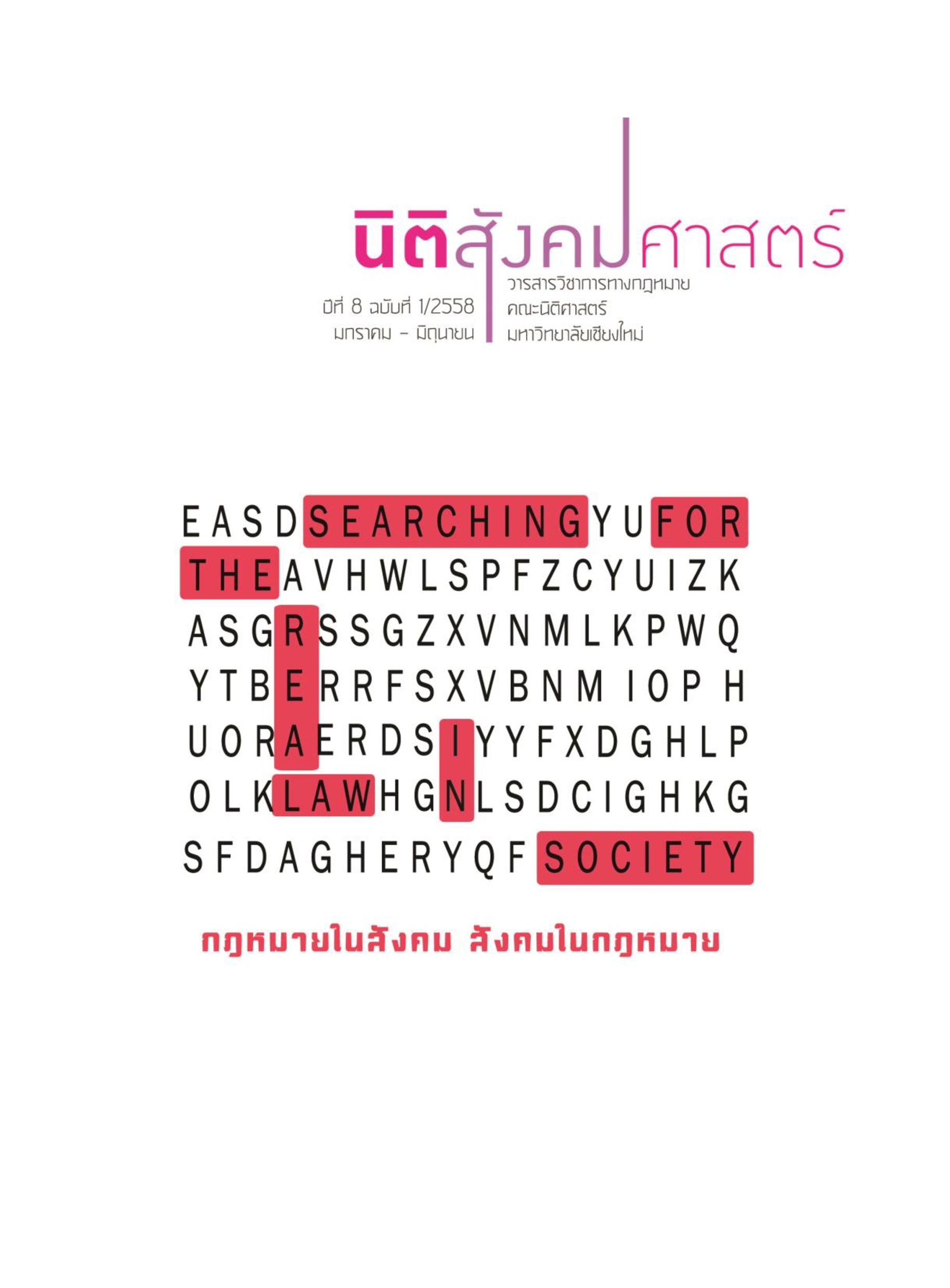พัฒนาการของสำนึกใน “สิทธิ” จากการเคลื่อนไหวทางสังคมของนักศึกษาในภาคตะวันออกเฉียงเหนือ
Main Article Content
บทคัดย่อ
หลังการรัฐประหารในปี 2557 นักศึกษาในภาคตะวันออกเฉียงเหนือบางกลุ่มที่เคยร่วมเคลื่อนไหวกับภาคประชาสังคม ในฐานะผู้สนับสนุนขบวนการต่อต้านนโยบายการพัฒนาของรัฐ ได้แสดงบทบาทเป็นผู้เล่นทางการเมืองเสียเอง โดยเฉพาะอย่างยิ่งในการต่อต้านกฎอัยการศึก สถานการณ์ดังกล่าว นักศึกษาได้เคลื่อนตัวไปสู่การรณรงค์เพื่อสิทธิพลเมืองในฐานะปัจเจกบุคคล บทความฉบับนี้มีความมุ่งหมายที่จะสำรวจการเปลี่ยนผ่านของสำนึกในเรื่องสิทธิของกลุ่มนักศึกษา จากการรณรงค์เพื่อสิทธิของผู้อื่น (ชาวบ้านที่เดือนร้อนจากนโยบายของรัฐ) มาสู่การรณรงค์เพื่อสิทธิพลเมืองของตนเอง โดยมุ่งตอบคำถามสองประการ คือ หนึ่ง อะไรคือความจริงเรื่องสิทธิจากความเข้าใจของนักศึกษาผ่านการร่วมเคลื่อนไหวกับชุมชน และ สอง สำนึกในเรื่องสิทธิพลเมืองของนักศึกษาได้ก่อตัวขึ้น ถูกให้ความหมายและคุณค่าผ่านงานด้านสังคมอย่างไร บทความชิ้นนี้ได้ทำการสัมภาษณ์เชิงลึกนักศึกษาสองกลุ่มที่อาสาลงไปทำงานกับชุมชนซึ่งได้รับผลกระทบจากนโยบายพัฒนาและการจัดสรรทรัพยากรของรัฐ
คำสำคัญ: สิทธิ; สำนึก; การเคลื่อนไหวทางสังคม; นักศึกษา; อีสาน
After the coup in 2014, the student groups in the Northeast Thailand have turned their position in the social movement from “a supporter” against the state’s development policy to “an actor” in the political arena, mainly in resisting the military rules. The latter is the situation in which the students have engaged particularly the civil rights advocate. This paper aims to examine the shift of the rights consciousness of the student groups from the rights advocate for others to the civil rights advocate of their own. The questions of the paper are: firstly what has been the rights discourse on the ground through the student’s activities in the community and secondly how the consciousness of the civil rights of students has been sharp and given the meaning and value through their social work. The paper has drawn from the in-depth interview with two active groups of students in the Northeast Thailand.
Keyword: Rights; Consciousness; Social Movement; Students; Northeast Thailand
Article Details
O ความคิดเห็นใดๆ ที่ลงตีพิมพ์ใน CMU Journal of Law and Social Sciences เป็นของผู้เขียน (ความคิดเห็นใดๆ ของผู้เขียน กองบรรณาธิการ CMU Journal of Law and Social Sciences ไม่จำเป็นต้องเห็นด้วย)
O กองบรรณาธิการ CMU Journal of Law and Social Sciences ไม่สงวนสิทธิ์ในการคัดลอกแต่ให้อ้างอิงแหล่งที่มาด้วย
เอกสารอ้างอิง
นิธิ เอียวศรีวงศ์. (2546). นอกรั้วโรงเรียน. กรุงเทพ: เรือนแก้วการพิมพ์.
ปิ่นแก้ว เหลืองอร่ามศรี (2556). Becoming Red. เชียงใหม่: ศูนย์วิจัยและบริการวิชาการ คณะสังคมศาสตร์ มหาวิทยาลัยเชียงใหม่
อรรถจักร สัตยานุรักษ์. (2557). ประชาธิปไตยคนไทยไม่เท่ากัน. กรุงเทพฯ: สำนักพิมพ์มติชน
Alexander, Saowanee and McCargo, Duncan. (2014). Diglossia and Identity in Northeast Thailand: Lignuistic, social, and political hierarchy. Journal of Sociolinguistics 18/1, 2014, 60-86.
Engel, D. (2011) Uprooted Justice: Transformations of Law and Everyday Life in Northern Thailand. Wisconsin International Law Journal, Volume 29, Number 2, 343-365.
Engel, D. (2012). Vertical and Horizontal Perspectives on Rights Consciousness. Indiana Journal of Global Legal Studies, Volume 19, Issue 2, 423-455.
Engel, D. and Munger, F. (1996). Rights, Remembrance, and the Reconciliation of Difference. Law and Society Review, Volume 30, Number 1, 7-53.
Munger, F. Culture, Power, and Law: Thinking About the Anthropology of Rights in Thailand in an Era of Globalization. New York Law School Law Review, 2006/2007, Vol. 51 Issue 4, 818-838.
Phatharathananunth, Somchai. (2006). Civil Society and Democratization: Social Movements in Northeast Thailand. Copenhagen: Nordic Institute of Asian Studies.
Tamanaha, B., Sage, C. and Woolcock, M. (ed.). (2012). Legal Pluralism and Development: Scholars and Practitioners in Dialogue. Cambridge University Press: the United States. Legal Pluralism and Legal Culture: Mapping the Terrain by Sally Engle Merry, 66-82.
ฐานข้อมูลออนไลน์
นิธิ เอียวศรีวงษ์. (2557). ประชาธิปไตยแบบไทย. http://www.matichon.co.th/news_detail.php?newsid=1415616055
อรรถจักร สัตยานุรักษ์. (2554). “คนหนุ่มสาวสามยุคในขบวนการประชาธิปไตย”. http://www.prachatai.com/journal/2011/10/37643

